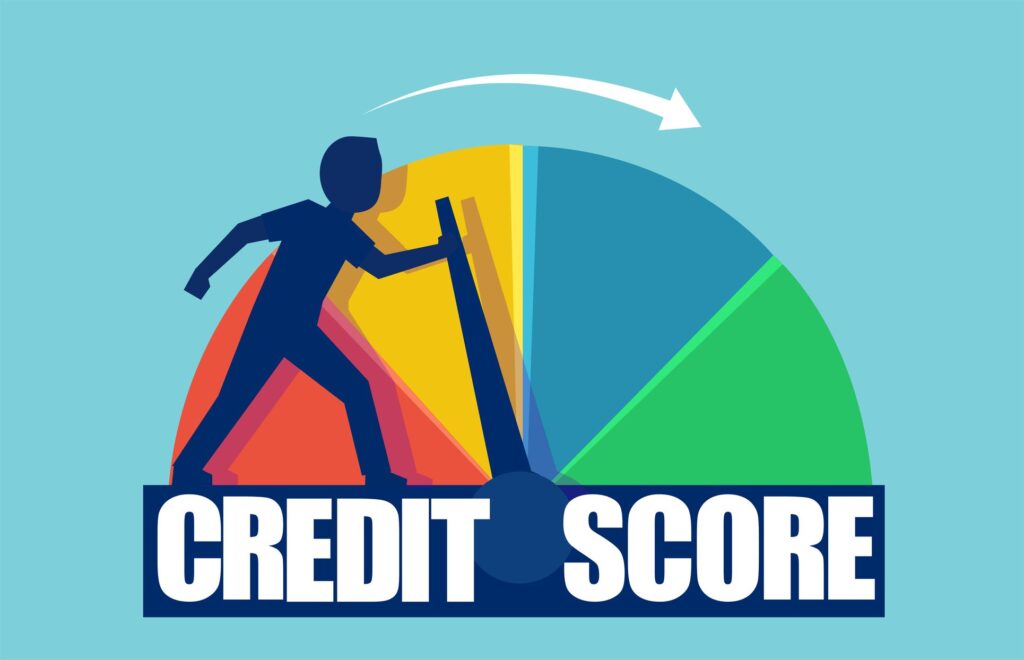Physical Address
304 North Cardinal St.
Dorchester Center, MA 02124
Physical Address
304 North Cardinal St.
Dorchester Center, MA 02124
Your credit score is one of the most important factors that mortgage lenders look at when determining your eligibility for a home loan. But with multiple scoring models out there, what credit score do mortgage lenders actually use to evaluate borrowers?
Mortgage lenders predominantly use FICO scores when evaluating applicants for home loans. Specifically, they often refer to FICO Score 2 based on Experian data, FICO Score 4 using TransUnion data, and FICO Score 5 derived from Equifax. If multiple FICO scores are available, lenders typically base their decision on the middle or lower score.

A credit score is a three-digit number that gives lenders a snapshot of your creditworthiness. It’s calculated based on the information in your credit report, which details your history of paying bills and managing debt.
Credit scores range from 300 to 850. The higher the score, the lower the risk you pose to lenders. A score above 700 is generally considered good, while 800 or higher is excellent.
There are a few different companies that calculate credit scores using their own formulas and scoring models. The most common are FICO® scores and VantageScore.
Your credit score is crucial for getting approved for a mortgage and securing favorable loan terms. Lenders use credit scores to gauge the likelihood that you’ll repay the loan as agreed.
Borrowers with higher scores are seen as lower risk and are more likely to be approved. They may also qualify for lower interest rates and reduced costs.
On the other hand, a low credit score can lead to a mortgage denial or higher rates and fees. Therefore, knowing and maintaining a healthy score is key for homebuyers.
The majority of lenders rely on FICO® scores when evaluating mortgage applicants. However, some may use VantageScore or another model in certain cases.
FICO scores are produced by the Fair Isaac Corporation and come in different versions or models. Most lenders will look at your FICO Score 2, 4 or 5 when considering a mortgage application.
Lenders may pull one, two or all three of these scores. If you have multiple FICO scores, most lenders will base their decision on the middle or lower score.
VantageScore is a newer type of credit score created by the three major credit bureaus – Equifax, Experian and TransUnion. Some lenders may use it along with or instead of FICO.
VantageScore uses the same 300 to 850 range but a different formula than FICO models. The scores tend to be more predictive for those with limited credit history.
While FICO and VantageScore are most common, lenders may sometimes consider alternatives like the Experian PLUS Score or TransUnion New Account Score for specific situations.
These niche scores look at your recent credit history or projected future creditworthiness. However, FICO remains the go-to standard for most mortgage lending decisions.
There are a few reasons why lenders use different credit score models:
Regardless of which score a lender uses, the most important thing is to maintain a high credit score across all models.
Here are some tips to boost your credit before applying for a mortgage:
With diligence and smart credit habits, you can raise your scores significantly in 6 months or less.
While every lender has their own underwriting standards, most adhere to general credit score guidelines for loan programs:
| Loan Type | Minimum Credit Score |
|---|---|
| Conventional Loans | 620 for 3% down payment 660-680 for less than 20% down 740 for best rates/terms |
| FHA Loans | 500 minimum to qualify 580 for 3.5% down payment |
| VA Loans | 620 or higher for approval 660 or better for best rate |
| USDA Loans | 640 minimum score 680+ for guaranteed financing |
| Jumbo Loans | 700 minimum 740+ for prime rates 760+ for most competitive terms |
Borrowers with credit scores below 620 may still qualify for a mortgage, but will face challenges. Some options include:
While hard, a mortgage with bad credit takes patience and perseverance. Don’t give up hope!
It’s wise to check your credit reports and scores from all three bureaus several months before applying for a mortgage. This gives you time to address any issues.
You can get your official FICO scores and full reports directly from myFICO.com or the credit bureau websites for a fee.
Alternatively, many credit cards and personal finance sites like Credit Karma provide free credit scores and monitoring, usually based on VantageScore. While not mortgage scores, they can provide insight into your general status.
AnnualCreditReport.com also lets you obtain your Equifax, Experian and TransUnion reports at no cost once a year. Review carefully for errors that could be tanking your score.
While your credit score carries a lot of weight, lenders also look at:
Maintaining excellent credit while meeting other key financial criteria gives you the best shot at mortgage approval on great terms.
Your credit score is the gatekeeper to homeownership. While most lenders rely on FICO scores, don’t ignore your VantageScore and other credit reports.
Aim for a minimum of 620, but scores of 740 or higher unlock the most affordable financing. Responsible credit management now pays dividends when you need it later for a new home.